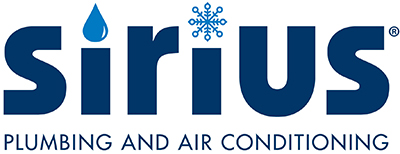
Summer in North Texas can be extremely hot, with temperatures often soaring into the triple digits. Managing indoor temperatures becomes crucial not only for comfort but also for energy efficiency and cost savings. So, what is the best temperature for your home during the scorching summer months in North Texas? Here’s a comprehensive guide to help you find the optimal setting for your thermostat.
Understanding the Recommended Temperature Range: The U.S. Department of Energy recommends setting your thermostat to 78 degrees Fahrenheit when you are home during the summer. This temperature strikes a balance between comfort and energy efficiency. When you are away from home, setting the thermostat to 85 degrees or higher can further enhance energy savings without compromising indoor conditions.
Factors Affecting the Ideal Temperature: While 78 degrees is a good starting point, the best temperature for your home may vary based on several factors:
- Humidity Levels: High humidity can make the air feel warmer. Using a dehumidifier in conjunction with your air conditioner can make 78 degrees feel more comfortable.
- Personal Comfort: Individual preferences play a significant role. Some people may find 78 degrees too warm, while others may find it just right.
- Home Insulation: Well-insulated homes retain cool air better, allowing you to maintain comfort at slightly higher thermostat settings.
- Ceiling Fans: Using ceiling fans can make a room feel up to 8 degrees cooler, enabling you to set your thermostat a bit higher while still feeling comfortable.
Energy Efficiency and Cost Savings: One of the primary reasons to maintain a higher thermostat setting during summer is to save on energy costs. For every degree you raise your thermostat above 72 degrees, you can save up to 3% on your cooling bill. Setting your thermostat to 78 degrees when you’re home and 85 degrees when you’re away can lead to substantial savings over the course of the summer.
Programmable Thermostats: Investing in a programmable thermostat can help you manage your home’s temperature more efficiently. These devices allow you to set different temperatures for different times of the day, automatically adjusting when you’re at home, asleep, or away. Smart thermostats take this a step further by learning your schedule and preferences, optimizing energy use without sacrificing comfort.
Nighttime Adjustments: At night, you may prefer a cooler environment for sleeping. Setting your thermostat a few degrees lower, around 74-76 degrees, can enhance sleep quality without significantly impacting your energy bill. Using lightweight bedding and breathable fabrics can also help you stay comfortable at these temperatures.
Other Cooling Strategies: In addition to setting your thermostat, there are several other strategies to keep your home cool:
- Close Blinds and Curtains: Blocking out sunlight during the hottest parts of the day can reduce indoor temperatures.
- Seal Leaks: Ensure windows and doors are properly sealed to prevent cool air from escaping and hot air from entering.
- Use Heat-Generating Appliances Sparingly: Limit the use of ovens, stoves, and other heat-generating appliances during the hottest parts of the day.
Finding the best temperature for your home during the North Texas summer involves balancing comfort and energy efficiency. A setting of 78 degrees Fahrenheit when you are home and 85 degrees when you are away is generally recommended. However, personal preferences, humidity levels, and other factors can influence the ideal temperature for your specific situation. By combining an optimal thermostat setting with other cooling strategies, you can maintain a comfortable and energy-efficient home throughout the hot summer months. If you’re still uncomfortable during these hot summer months in North Texas, let’s us do a comprehensive HVAC inspection to see how we can help you save money on your energy cost. Contact us today.





